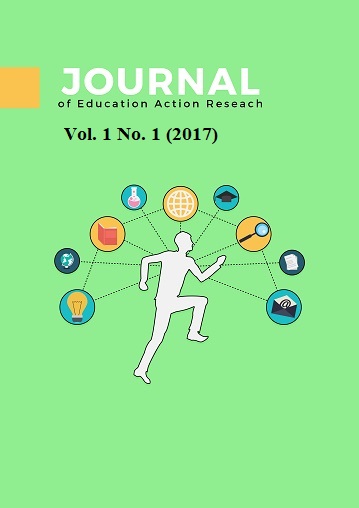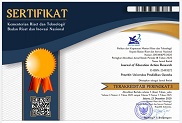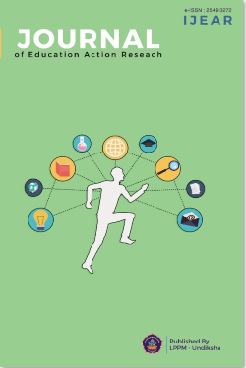Improving Speaking Competency of The Students at SMK N 4 Bangli Using Project-Based Learning
DOI:
https://doi.org/10.23887/jear.v1i1.10122Abstract
This study aimed at improving speaking competency of the students using project-based learning. The subjects of this study were the eleventh grade AP1 students of SMK Negeri 4 Bangli which consisted 25 students. The study was conducted by following the action research procedures and it was completed in two cycles. The result of the study showed that speaking competency of the students could be improved by using project-based learning. The result of post-test 2 proved that the students’ mean score was 80 which significantly improved from the pre-test result that was 69. The class percentage of the students passing the test was 100% which was beyond the expectation which was 75%. Based on the questionnaire, the students also had positive response towards the implementation of project-based learning. The result showed that learning English using project-based learning could improve their speaking competency in terms of fluency, pronunciation, grammar, and vocabulary.
References
Brown, H. Douglas. (2010). Language
assessment principles and
classroom practice. Second Edition. New York: Pearson Longman.
Blumenfeld, P. C., Soloway, E., Mark, R.,
W., Krajcik, J., S., Guzdial, M. &
Palincsa, A. (1991). Motivating
project-based learning: sustaining
the doing, supporting the
learning. Educational Psychologist.
Educational Psychologist, 26 (3 &
, 369-398. The University of
Michigan. Retrieved from http://mathforum.org/wikis/uploads/Blumenfeld.motivating.project.based.pdf
Harmer, J. (2001). The Practice of English
Language Teaching ELT Journal,
(4), 269-370.
Hosni, A. L. (2014). Speaking difficulties
encountered by young EFL
learners.
Khotimah, S. (2014). “The use of problem based learning to improve
students’ speaking ability”. Journal
of English Language Teaching,
(1), 50-56. Retrieved from http://journal.unnes.ac.id/sju/index.php/elt
Maulany, D. B. (2013). The use of project-
based learning in improving the
students speaking skill. Journal of
English and Education, 1 (1), 30-
Retrieved from http://www.ejournal.upi.eud/index.php.L-E/article/view323.pdf
Mettetal, G. 2001. The what, why and how
of classroom action research. The
Journal of Scholarships of Teaching
and Learning (JoSoTL), 2(1), 6-13.
Retrieved from
http://josotl.indiana.edu/article/viewFile/1589/1588
Patton, A. (2012). Work That Matters: The
Teacher’s Guide to Project-Based
Learning. The Paul Hamlyn
Foundation.
Schneider, R. M., Krajcik, J., Marx, R. W., & Soloway, E. (2002). Performance
of students in project-based
science classrooms on a national
measurement of science
achievement. Journal of Research
in Science Teaching, 39(5), 410-
Retrieved from http://www.umich.edu/~hiceweb/papers/2001/performance/Schneider_NAEP.pdf
Thomas, J. (2000). A review of research on PBL. Journal of educational development, 1-48. Retrieved from http://www.bobpeartman.org/BestPractice/PBL.Research.pdf
Ur, P. (1996). A course in language
teaching: practice and theory. New
york: Cambridge
University Press. International journal on studies in English language and literature (IJSELL), 2 (6), 22-30. Retrieved from www.arcjournal.org












